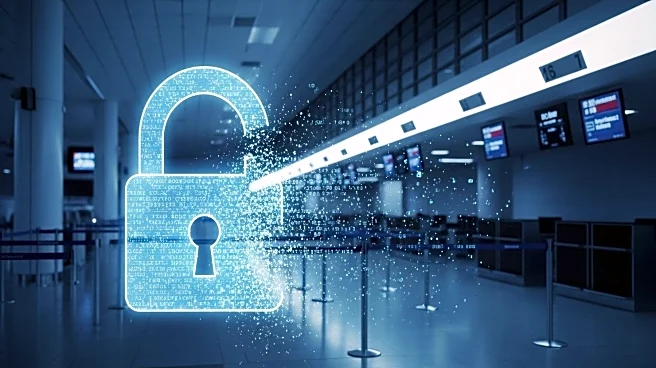What is the story about?
What's Happening?
A cyberattack has caused significant delays at several major European airports, including Heathrow Airport in London, Berlin-Brandenburg, Brussels, Dublin, and Cork. The disruption, which began on Friday evening, affected the check-in systems provided by Collins Aerospace, an American company. The cyber-related issue led to longer waiting times for passengers as airport staff had to resort to manual check-ins. RTX, the parent company of Collins Aerospace, confirmed the cyberattack and stated that efforts are underway to restore full functionality to the affected systems.
Why It's Important?
The cyberattack highlights the vulnerability of critical infrastructure to digital threats, emphasizing the need for robust cybersecurity measures in the aviation industry. The incident has disrupted travel plans for numerous passengers, potentially affecting international business and tourism. It underscores the interconnectedness of global travel systems and the potential for widespread impact from localized cyber incidents. The reliance on digital systems for efficient airport operations means that any disruption can have cascading effects on flight schedules and passenger experiences.
What's Next?
Airports and airlines are likely to review and strengthen their cybersecurity protocols to prevent future incidents. The affected airports will continue to work with Collins Aerospace and RTX to resolve the issue and restore normal operations. Passengers may experience ongoing delays until the systems are fully operational. The incident may prompt regulatory bodies to assess the cybersecurity standards of aviation service providers and consider implementing stricter guidelines to safeguard against similar attacks.
Beyond the Headlines
This cyberattack may lead to increased scrutiny of third-party service providers in the aviation sector, as their systems are integral to airport operations. The incident could also spark discussions on the need for international cooperation in cybersecurity to protect global travel infrastructure. Additionally, it raises questions about the preparedness of airports to handle cyber threats and the potential need for contingency plans to minimize disruption during such events.














